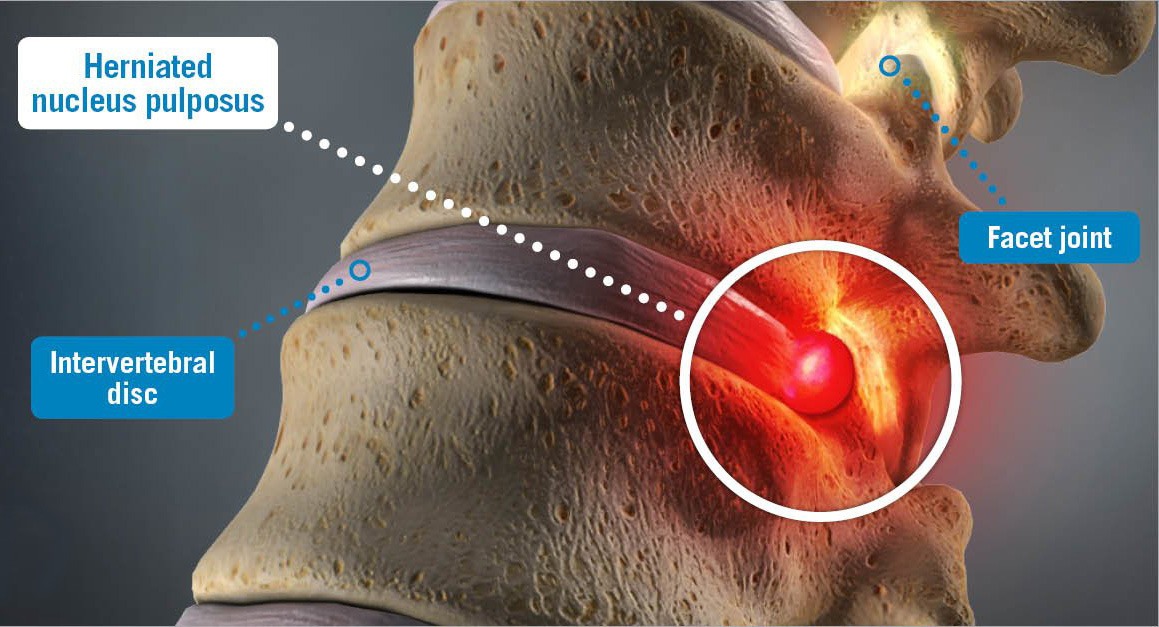- Conditions
- Procedures
- Patient care
- Why choose us
- Our Doctors
- Contact
Home » Spine Conditions »
What does herniated nucleus pulposus (HNP) mean?

If you have been diagnosed with HNP, you are probably wondering what that means and whether or not there are any treatments available to you. HNP, or a herniated nucleus pulposus, is the more medically oriented term for what most people refer to as a herniated disc or slipped disc. You are certainly not alone in your diagnosis, as a herniated disc is one of the most common spine conditions among adults and there are a variety of treatment options available.
The nucleus pulposus is the jellylike inner material found within the thick, outer walls of the discs, which are soft, sponge-like bodies responsible for providing support and flexibility between the vertebrae along the entire length of the spine. Due to the gradual deterioration of these discs as part of the natural aging process, these discs can develop a tear and the nucleus pulposus may push through the disc wall and extrude into the spinal canal — a condition known as a herniated nucleus pulposus.
HNP symptoms
Interestingly, HNP does not in itself result in any symptoms beyond localized disc pain. Only when the nucleus pulposus compresses a nearby nerve or the spinal cord do the more serious symptoms arise. In fact, it’s entirely possible you have one or more herniated discs at various levels of your spine at this very moment, but they simply don’t cause any problems unless this nerve compression is present. When nerve compression occurs, the symptoms can potentially be debilitating. They can include:
- Chronic pain
- Pain traveling the length of a nerve
- Numbness
- Weakness
- Tingling
- Loss of reflexes
Treating HNP
If your doctor has determined that a herniated disc is compressing a nerve and causing your symptoms, he or she will likely recommend a treatment program consisting of one or more nonsurgical treatments. For many people, such treatments are often very effective in managing the pain and other symptoms associated with HNP. These conservative therapies can include exercise, physical therapy, hot/cold therapy, pain medications and stretching.
Minimally invasive alternatives for HNP
Some patients, however, simply aren’t able to ease their HNP symptoms through conservative methods, and instead turn to elective surgery as a last resort. If this describes your situation, contact USA Spine Care today to learn more about our available treatments. Our minimally invasive procedures are a safer and effective alternative to traditional open back surgery^ and can help you find relief from your HNP symptoms.
We offer a no-cost MRI review* to determine if you may be a candidate for one of our state-of-the-art procedures, which have helped more than 75,000 patients find relief from their chronic neck and back pain.
